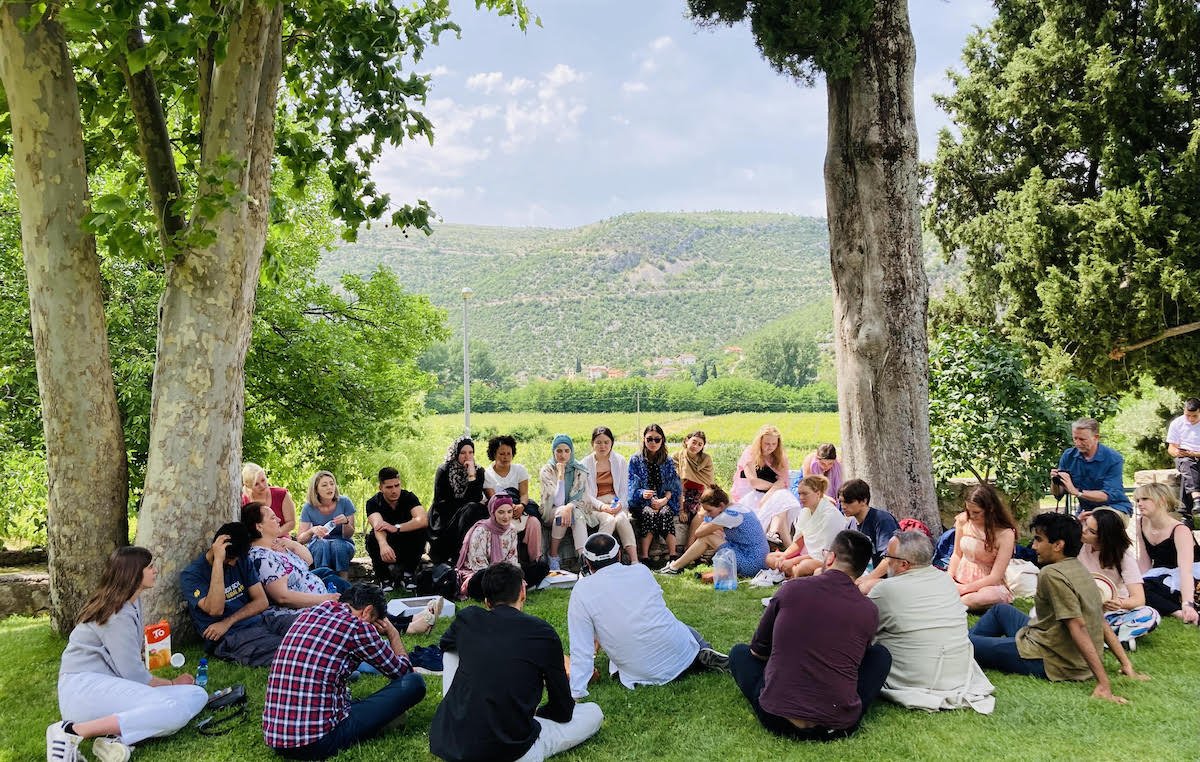LATEST POSTS
Exclusion and Embrace: A Discussion on What it Means to Embrace the Other
Join us for this special and timely conversation with our Rick Love Peacemaker Award winners, Professor Miroslav Volf and Muslim faith leader and peacemaker Hurunnessa Fariad. Hosted by our President, Martin Brooks, this conversation will delve into the "why" and the "how" of embracing 'the other.' The discussion will be based around Dr. Volf’s book, Exclusion and Embrace: A Theological Exploration of Identity, Otherness, and Reconciliation.
Boarding Schools – Weaponized for Cultural & Religious Indoctrination
Uyghur, Kazakh, Tibetan, and other minority families are being traumatized through the assimilationist policies of the Chinese government. These policies include children being forcibly separated from their parents and put in boarding school where they are systematically stripped of their language, culture, and religion.
Government Boarding Schools as a Tool of Genocide in the 21st Century
Pope Francis is currently in Canada and has delivered a historic apology for the suffering and abuse in the Catholic boarding schools for Canada's indigenous peoples. This apology comes on the heels of the Pope's apology from the Vatican in April of this year. Schools of this type are not just things of the past, though. Similar boarding schools are currently in operation in China for Uyghur and Tibetan peoples. Watch the video from this joint event with Peace Catalyst as well as representatives from several Uyghur and Tibetan human rights advocacy organizations to learn more about what's happening.
Finding Hope Amid the Horrors of Violence: Lessons from Sarajevo
I applied to Notre Dame’s faculty-led trip to Bosnia and Herzegovina this summer because I wanted to learn more about a part of Europe that is often left out of history books and course syllabi. I wanted to educate myself on the rich history of the country, and the current situation in regards to peacebuilding. This trip did help me accomplish those goals, but the most impactful part of the journey was actually a conversation about my own country.
Religion, Identity, and Peace: Learning Through Cultural Immersion in Bosnia and Herzegovina
During our May student trip to Sarajevo, Amra, one of our discussion facilitators, laughed, cigarette dangling from her lips, as she likened the city to a femme fatale—alluring, but with a dark side. It was, we soon learned, an apt description for a lovely and complicated city, one that has been simultaneously strengthened and scarred by its history.
How I Learned to Appreciate Religion’s Role in Building Peace
Bosnia and Herzegovina is not a place I had ever pictured myself visiting. But thanks to a student trip made possible by the University of Notre Dame and Peace Catalyst International, I recently visited the country—not as a tourist, but as a student of peacebuilding who gained a new appreciation for the role of religion in peace processes and reconciliation.
Why Your Church Should Start Training for Peacebuilding Now
Although it’s best to train for peacebuilding before conflict arrives, conflicts are already present in our personal lives, churches, and society. The time to begin training for peacebuilding is now. It’s time to get started centering peace-oriented theology and peacebuilding skills training in our churches and Christian formation so that we can learn to partner as peacebuilders to bless and heal our communities.
Where Do Peace and Justice Meet? Reflections on Peacemaking in Israel-Palestine
How can peacemaking be the thing that leads to justice, and vice versa? From a Jesus-following perspective, we can see how the methods of creativity and nonviolence that Jesus used not only disarmed the oppressors of His time and perhaps convicted them of their wrongdoing, but also gave a sense of freedom and dignity to the person being mistreated. There's something different about creative nonviolence in the ways of Jesus - it's not just about freeing the oppressed; it's also about freeing the oppressor.
Notre Dame Bosnia Trip Reflection: “Religion, Identity, and Peace at the Periphery of Europe”
Notre Dame professor Dr. Mahan Mirza and Peace Catalyst President Martin Brooks just returned from a trip to Bosnia & Herzegovina (BiH) with 14 Notre Dame students and 11 Bosnian university students. The students learned from numerous local Bosnian peacebuilders and social scientists about Bosnia and Herzegovina’s rich history of peacebuilding, competing ethno-religious narratives, trauma and cycles of conflict, and issues of identity. These are some of our highlights and takeaways.









